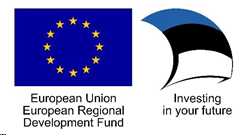Research Seminar by TLU Centre of Excellence in Interdisciplinary Lifecourse Studies: Katrin Schwanitz
Registration: Research Seminar by Katrin Schwanitz
For the purpose of organising this event, Tallinn University (controller, Koidu.Saia@tlu.ee) processes the
following personal data: https://www.tlu.ee/en/personal-data-processing
Add to calendar
iCal calendarResearch Seminar on topic: Partnership dynamics in Central and Eastern Europe
By Researcher Katrin Schwanitz
Program
14.45-15.00 Registration and welcome coffee
15.00.-16.30 Presentation and discusion
Abstract
Background: Remarkable changes in partnership formation and dissolution have occurred in the last decades across Europe – marriage is being postponed or even replaced by cohabitation (as an alternative living arrangement for unmarried adults), divorce is increasing, and more individuals now re-enter the partner market and eventually re-partner. Prior research has noted that levels of union formation and dissolution have not been increasing uniformly across countries and instead appear to be diverging. This divergence in behaviors across countries underscores the importance of the socio-economic, socio-cultural, policy, and institutional context for understanding changes in partnership formation and dissolution. However, only few comparative studies examine how partnership formation and dissolution patterns differ across countries. And if they do, studies tend to focus more strongly on the United States and Western European countries than on Central and Eastern European countries. Objective: Against this background, I will first examine holistic partnership trajectories between ages 15 and 45 using cohabitation and marriage histories for 117,571 respondents in 10 Central and Eastern European countries. This approach allows examining the complexity of relationship transitions across the life-course by simultaneously investigating the timing and sequencing of partnership formation, as well as union dissolution and re-partnering. Second, I will examine cross-national differences in the timing and duration of the partnerships and whether or not the relationship between socio-demographic characteristics and partnership formation, as well as union dissolution and re-partnering are similar or different across countries. Methods: Using the Harmonized Histories database (https://www.ggp-i.org/data/)

Activity is financed by the European Regional Development Fund through the institutional package measure for R&D institutions and higher education institutions (ASTRA project TLU TEE of Tallinn University) and is organised by TLU Centre of Excellence in Interdisciplinary Lifecourse Studies